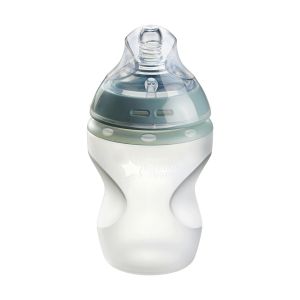
This is a demo store. No orders will be fulfilled.
Subscription orders can be cancelled at anytime. Standard delivery will be charged on each subscription order. Find out more about subscriptions.
They’re easy and fuss free
Your products are automatically sent to you
You save when you sign up for a subscription
You can cancel at any time
Babies do three things - eat, sleep and poop. And if you've recently become a parent (congrats!), it may come as a shock to you just how many nappies your little one can get through a day.
Newborn poop isn't very much like its adult counterpart, which can take you by surprise when you first start changing nappies! Here's everything you need to know about what's normal and what's not in the world of newborn baby poop.
While there isn't an exact poop quota your baby should meet each day, here's what a normal day of pooping might look like:
While all of this might seem like too much poop to handle, there's generally not a lot to worry about. Some babies are quite literally pooping machines, while others can go a few days without pooping at all!
As long as your baby seems happy, bouncy and is eating well, chances are things are fine - even if you need to change them 12 times a day!
A better indication of your baby's digestive health is the colour of their poop.
Below is a rough guide to the different shades of baby poop and what the colours might mean:
We're sure you're aware by now just how much a baby's poo can vary! If your little one is eating well, gaining weight and growing, chances are everything is fine.
While it's not unusual for breastfed babies' poop to be loose, if your baby's poop is frequently watery, it could be a sign of diarrhoea.
Diarrhoea can be a symptom of many things, including infection, teething, antibiotics, dietary changes or allergies. It's always best to get your baby checked out by a doctor to find the root cause of the problem!
Remember - if your baby does have diarrhoea, it's important to keep their fluid levels in check. Breastfeed or offer your baby the bottle more frequently to help them get the extra fluids they need.
You might think your baby is constipated if they seem to strain when pooping. But if you're feeding your baby formula this is quite normal. Formula is a little harder for babies to digest (and makes their poop more solid), and it's completely normal for them to seem strained or upset when passing a poop. As long as their poop is soft and a normal colour, everything should be fine.
Your baby might be genuinely constipated if they show any of the following signs:
Constipation can be caused by a number things, including dehydration or a change in diet. Thankfully, these can be easily treated using the following methods:
Lay your baby down on their back on a soft, safe and comfortable surface. Gently give their tummy a massage to help get things moving. You can use your fingertips to make circular motions across their belly in a clockwise pattern.
You can try exercising your baby to help things along. Lay them down on a soft, safe surface and gently move their legs in a cycling motion. These movements will encourage their bowels to function and provide some relief.
Bathe your little one in warm water to help their abdominal muscles relax and discourage them from straining. This can also help soothe some of the discomfort associated with constipation.
Pooping problems can lead to your baby's nappy area getting irritated. While nappy rashes are super common, they can also be super uncomfortable for your baby, so it's important to protect their skin.
If your baby already has a nappy rash that's causing them discomfort, you should use a nappy rash cream to treat it. You can ask your health visitor or pharmacist for a recommendation on this.
Once you've applied the nappy rash cream, you can use a thin layer of barrier cream to protect their sensitive skin. This should be done during every change, and it will help prevent an uncomfortable nappy rash from upsetting your little one!